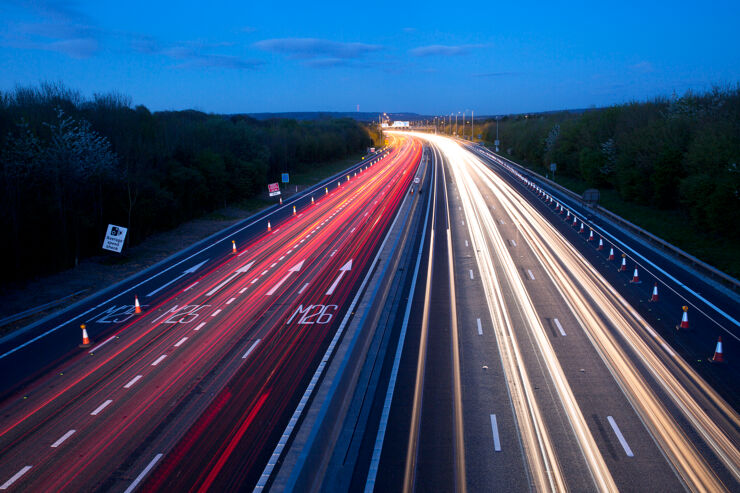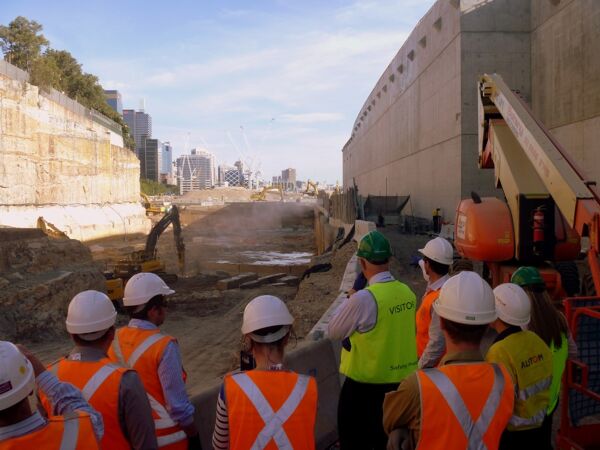
Every business needs to understand its net-zero emissions target. Adam Crossley, head of environment and strategy at Skanska UK, sets out how tackling climate change can make the highways sector more efficient and attractive.
Even if you are not a big advocate of fighting climate change you can't help but notice how it is increasingly on the agenda everywhere - whether it's protests in Parliament, the Prime Minister committing the UK to net-zero emissions by 2050, or the latest David Attenborough documentary.
This is a serious challenge. And it is not going away. What does it mean for the highways sector? If done right, it could make the sector more attractive to road users and future talent while making it more efficient.
Let's start with understanding how the sector contributes to climate change, which it does significantly, and how each emission source can be de-carbonised to zero.
Firstly, there is the traffic. Everything from family cars to heavy haulage, and all those petrol and diesel emissions. This is going to be de-carbonised by wholesale take-up of electric and hydrogen transport over the next two decades. Throw in the advance of autonomous vehicle technology along with the need for new electric and hydrogen charging infrastructure and we could have an entirely new network, along with entirely new safety and customer service challenges. At Skanska, we just installed 67 charging points at our UK head office, enabling more new electric vehicles on the network, and that is just what we are doing. But everyone in the sector has a part to play in how the network will change.
Secondly, there is road building and maintenance, and everything that goes with it. Construction stuff. At Skanska that is what we do. Making roads, building bridges, maintaining the network. That's a lot of material and a lot of plant and equipment. There are three primary sources of emissions from doing that. There are emissions from electricity we use for fabricating steel, producing cement, using power tools, powering a depot, and so on. There are chemical emissions from the cement binding process itself. And then there are all the construction and maintenance vehicles we use, generating petrol and diesel emissions.
So how do we tackle all that?
Some of it will be tackled at source. Over time, the UK will de-carbonise electricity production, so whatever we use will be carbon free. The steel and cement industry will develop commercially viable carbon capture solutions, like one in development at Drax power station, which suck carbon out of the air before it gets into the atmosphere. And eventually there won't be diesel dumpers and petrol vans, vehicles will all be electric and hydrogen.
But for the highways sector to adapt to the challenge of climate change we cannot wait for other industries to do the job for us. We need to set a vision for a sector net-zero target which the entire highways supply chain can support. And we need to map out how we can drive carbon reductions at a faster rate and use carbon as a different way to reduce costs while increasing innovation.
How can we use fewer materials by designing more efficiently? How can we accelerate bringing electric and hydrogen vehicles into our own fleets? How can we collaborate with innovators to speed up the uptake of zero carbon transport technology? How can we use new construction techniques, like off-site manufacture? How can we understand carbon with better data, and target opportunities where we can reduce carbon and cost at the same time?
It all starts with a target that the sector can invest in achieving. At Skanska we have committed to operating with net-zero carbon emissions by 2045, and that includes all emissions from the materials we use and the supply chain working with us. We have mapped out the detail of how we think that will happen, so we know where to invest and what to focus on. And, crucially, our supply chain know they are part of it and need to collaborate with us.



